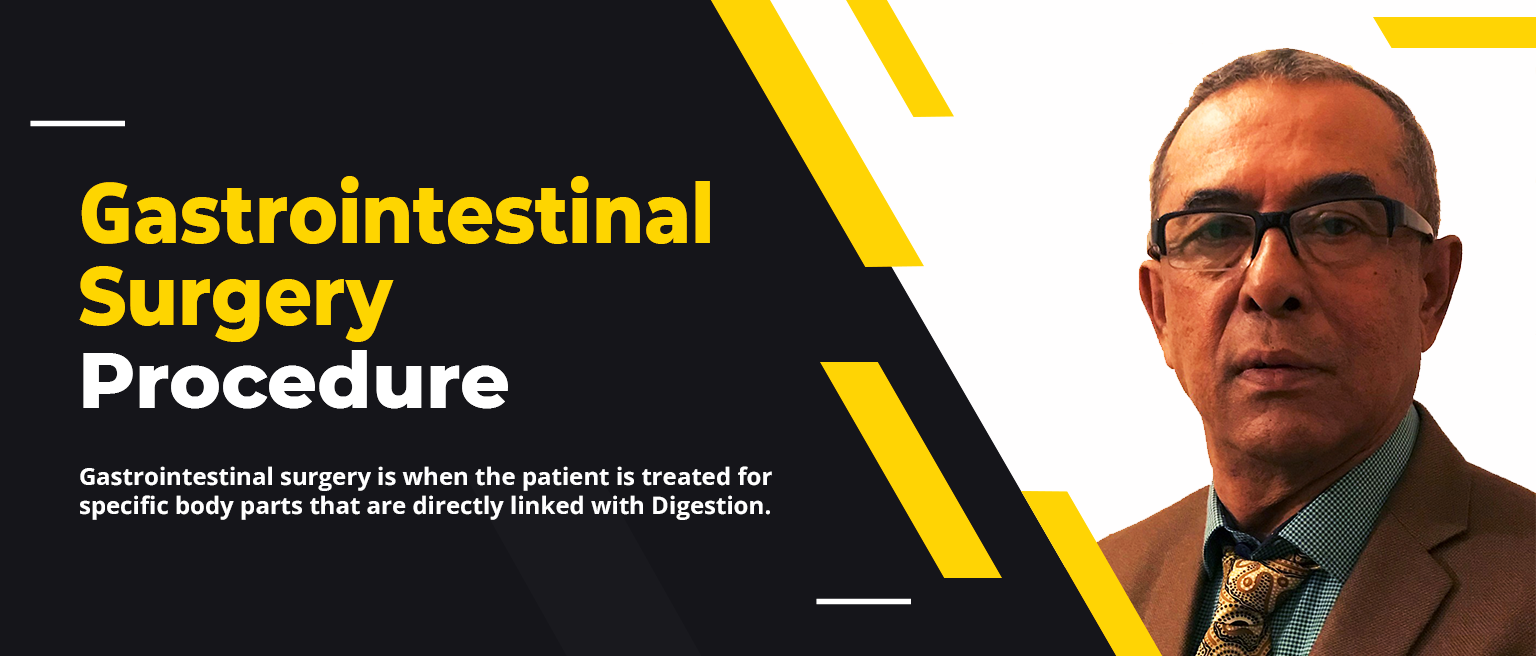Due to unhealthy fast foods and irregular diets, many of us are affected by gastrointestinal or GI disorders. Commonly known GI disorders are colorectal cancer, gallbladder disorders, inflammation, gastroesophageal reflux diseases, Celiac Disease, Irritable bowel movement, etc.
Gastrointestinal surgery is when the patient is treated for specific body parts that are directly linked with digestion. The same includes the esophagus, small intestine, stomach, large intestine, and rectum. It may also include other internal organs such as the liver, pancreas, and gallbladder. The surgery removes probable cancerous or non-cancerous growth within the organs or repairs problems like a hernia.
The procedure goes under local anesthetic conditions. The sedation would make you comfortable while the procedure is carried out. Proceeding with surgery may depend on your health condition, and the surgeon will decide accordingly. So what is the condition under which it is carried out? Let’s take a look at some of the situations.
Why Is Gastroscopy Used?
Gastrointestinal surgery is done under the following situations. Some may be commonly known, while some are quite new to many people. Let us have a look at some of them.
- To investigate dysphagia: This is a serious issue where people face difficulty swallowing certain food items, including both solids and liquids.
- To reduce stubborn stomach ache: Stomach aches could get worse, and in some cases, it sticks with the person. Such aches need removal.
- Gastro-oesophageal reflux disease: Gastro-oesophageal reflux conditions like stomach ulcers responsible for heartburn and acid reflux can be diagnosed with gastroscopy.
- Treat conditions: There are bleeding ulcers, esophagus blockage, polyps, or cancerous tumors that need early recognition.
Types Of Gastrointestinal Procedures
There are a few types of GI surgeries carried out. Some could be extremely serious, while some take as few as fifteen minutes. So, without further delay, let us briefly look at the types of GI surgeries.
The laparoscopic procedures:
These procedures allow the surgeon to operate the issues with minute incisions and use a smaller version of the camera to carry out the process. Special Surgical instruments are used, such as a laparoscopy. The laparoscopy is inserted in the abdominal wall to transmit images from within the body to a monitor.
This allows the surgeon to carry out the operation properly. The laparoscopic procedure benefits the patient with less blood loss, pain, fewer scars, and, the best part, minimal risk of infection. In addition, the patient gets discharged soon.
The surgeon uses the technique to treat many gastrointestinal and other minor issues. Here are some of the
Common laparoscopic GI procedures:
- Nephrectomy
- Adrenalectomy
- Appendectomy
- Bariatric Surgery
- Pancreatic surgery
- Colon and Rectal Surgery
- Foregut Surgery
- Cholecystectomy
- Retroperitoneum Surgery
- Hiatal Hernia Repair
- Peptic Ulcer disease
- Primary and metastatic tumors
The laparoscopic procedure may come with many benefits, but it might be best to go ahead with Open GI surgery in some severe cases.
Open Gastrointestinal Surgery:
Open surgery is performed under professional medical conditions with experts. The incisions are larger, resulting in larger scars, more pain, and longer hospital premises stay. In addition, the recovery time is comparatively more due to the scare size and depth. Therefore, it is best to choose open surgery for people with previous experience in surgery or laparoscopy.
Some of the open gastrointestinal procedures are listed below.
- Appendectomy
- Pancreaticoduodenectomy
- Roux-en-Y
- Adrenalectomy
- Nissen fundoplication
- Abdominal Surgeries.
The procedure carried out depends completely on the case history and the patient’s condition.
Some Of The Side Effects To Be Kept In Mind
- Painful aftereffect: A surgery may turn out to be painful, depending on the intensity of the procedure.
- Infection can come along: The body gets subjected to infection the moment it gets in contact with the open environment. So although surgeons are very careful about keeping their instruments sanitized and sterile, the infection may come along.
- Anaesthetic reaction: Anaesthesia may not work the best for everyone. Some people might have after-effects of anesthesia, such as vomiting or nausea.
- Bleeding issues: Sometimes, the cuts from surgery tend to bleed more than necessary due to some problem. It might take longer to dry up the wound.
It would be best to consult the surgeon if the symptoms worsen. This will keep the situation stable and calm.
Ending note
Gastrointestinal surgery or gastrointestinal endoscopy is a surgical procedure where a thin, flexible tube looks deeper within the gullet or esophagus, small intestine or duodenum, and the stomach. The examination of the stomach or gastroscopy can help determine medical conditions like peptic ulcers or gastritis. Sometimes, getting surgery may save a lot of things in your life.
Simply removing a tumor can make a lot of changes. The recovery time may vary as per the case history of the patient. With certain surgeries like colonoscopy, the patient can get back to a regular lifestyle faster. Follow the required instructions from the doctor and give yourself a happier life in the future.






